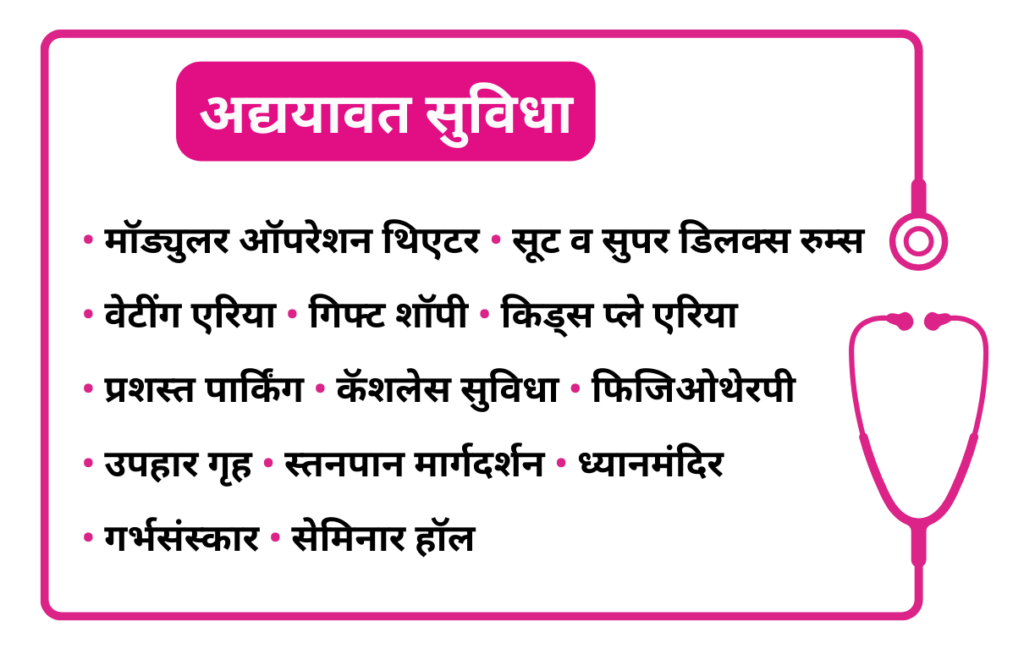Laparoscopic & Minimally Invasive Surgery
by Specialist
At Snehdeep Hospitals, we are dedicated to providing advanced laparoscopic and minimally invasive surgical care with compassion and expertise. If you have any concerns or wish to schedule a consultation, contact us today!
Book Your Appointment
Understanding and Managing Endometriosis
Endometriosis is a chronic medical condition where the tissue similar to the lining of the uterus (endometrium) grows outside the uterus. This often affects the ovaries, fallopian tubes, and pelvic lining but can extend to other organs in rare cases. It affects approximately 10% of women of reproductive age globally, causing pain, infertility, and significant emotional and physical distress.
Why Choose Snehdeep Hospitals for Laparoscopic and Minimally Invasive Surgery?
Snehdeep Hospitals in Ahmednagar is a premier healthcare provider offering cutting-edge laparoscopic and minimally invasive surgical services. Our hospital is equipped with advanced surgical technology and modern operating rooms, ensuring precision and patient safety.
Our team of highly experienced surgeons specializes in performing a wide range of minimally invasive procedures. At Snehdeep Hospitals, patient care is our top priority, and we are committed to providing world-class treatment with personalized attention.
Signs and Symptoms
Laparoscopic surgery may be recommended for the following conditions:
- Gynecological Issues: Such as endometriosis, ovarian cysts, fibroids, or ectopic pregnancy.
- Digestive Disorders: Like gallstones, appendicitis, hernias, and gastroesophageal reflux disease (GERD).
- Urological Problems: Including kidney stones and prostate surgeries.
- Cancer: As part of diagnostic staging or treatment for certain cancers.
- Diagnostic Purposes: To investigate unexplained abdominal or pelvic pain.
How is Laparoscopic Surgery Performed?
- Preparation: The patient is positioned under general anesthesia to ensure a pain-free procedure.
- Small Incisions: Tiny incisions, typically 0.5 to 1.5 cm, are made in the abdomen or pelvic region.
- Insertion of Laparoscope: The laparoscope is inserted through one of the incisions to project images onto a monitor, providing a clear view of the internal organs.
- Gas Insufflation: Carbon dioxide gas is used to inflate the surgical area for better visualization and access.
- Use of Specialized Instruments: Through other small incisions, surgical tools are inserted to perform the required procedure.
- Completion: After the surgery, the instruments are removed, the gas is released, and the incisions are closed with sutures or surgical tape.
How to Prepare for Laparoscopic Surgery
- Medical Evaluation: Undergo pre-operative tests, such as blood tests, imaging, or an ECG, as advised by your doctor.
- Medication Adjustment: Inform your doctor about any medications, supplements, or allergies. Some medications, such as blood thinners, may need to be paused.
- Fasting: Avoid eating or drinking for 8-12 hours before the surgery.
- Arrange Transportation: Bring an attendant or arrange transportation, as you may not be able to drive post-surgery.
- Follow Pre-Surgery Instructions: Your surgeon may recommend specific instructions, like bowel preparation for gastrointestinal surgeries.
What to Expect After Laparoscopic Surgery
- Recovery Time: Most patients are discharged the same day or within 24 hours. Full recovery typically takes 1-2 weeks, depending on the procedure.
- Post-Surgery Care: Mild discomfort, bloating, or fatigue is common but usually resolves within a few days. Pain medications may be prescribed.
- Follow-Up: A follow-up appointment will be scheduled to monitor healing and address any concerns.
- Activity Restrictions: Avoid heavy lifting or strenuous activities for a few weeks as advised by your surgeon.
FAQs Around Laparoscopic and Minimally Invasive Surgery
At Snehdeep Hospitals, we are dedicated to providing advanced laparoscopic and minimally invasive surgical care with compassion and expertise. If you have any concerns or wish to schedule a consultation, contact us today!


